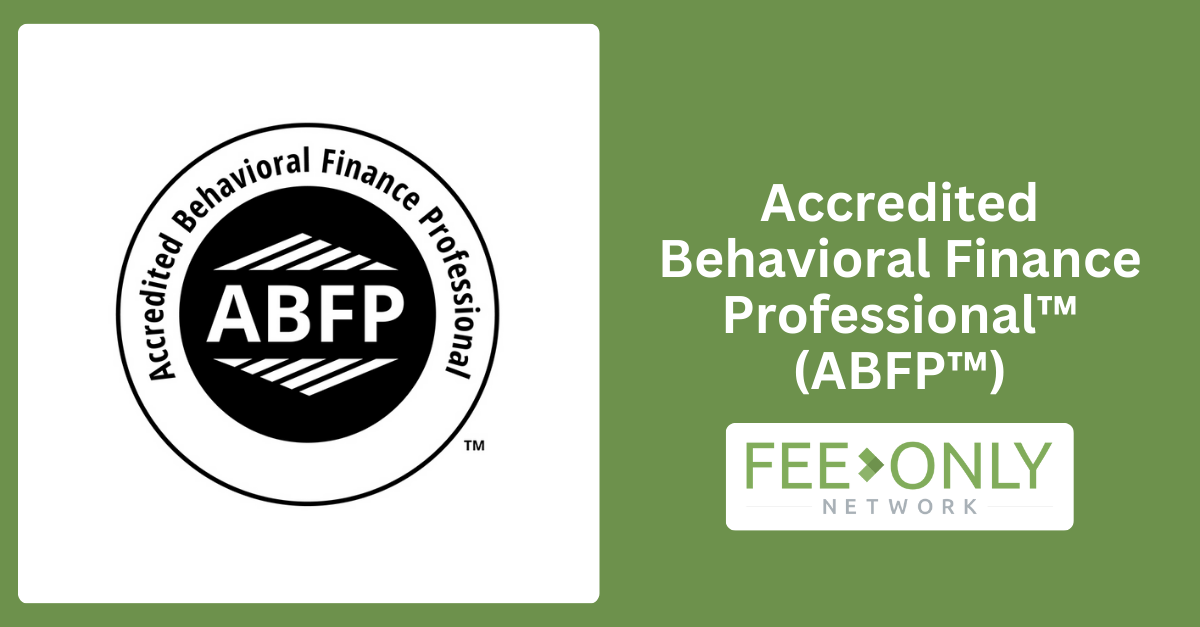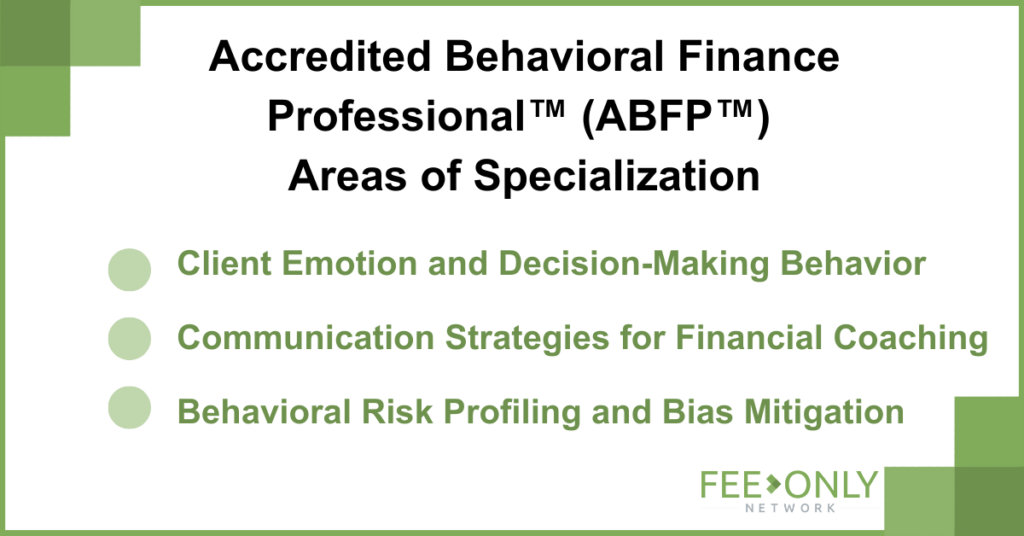
Updated: April 2, 2025

The Accredited Behavioral Finance Professional™ (ABFP™) designation equips financial advisors with specialized knowledge in behavioral finance—helping them better understand how emotions and biases influence client decisions. This certification is especially valuable in guiding clients through market volatility, financial planning stress, and long-term goal setting. Offered by the College for Financial Planning®, the ABFP™ credential highlights an advisor’s commitment to improving client outcomes through psychology-informed financial strategies.
The ABFP™ designation focuses on behavioral finance principles—blending financial theory with psychology. Advisors with this certification are trained to identify and address emotional and cognitive biases that impact client decision-making, particularly in high-stress or uncertain environments. This skill set can help clients avoid common pitfalls like panic selling, overconfidence, and loss aversion.
The ABFP™ is ideal for advisors who want to deepen client relationships, improve communication, and provide holistic financial advice that goes beyond numbers.
To earn the Accredited Behavioral Finance Professional™ designation, candidates must:
The course typically takes 6-9 weeks and is delivered entirely online, making it accessible to working professionals.

Understanding behavioral finance allows advisors to connect with clients on a deeper level. They can recognize signs of emotional distress, address irrational fears, and help clients stay focused on long-term objectives—even when the markets get turbulent.
Financial behavior is often driven by fear, greed, or overconfidence. Advisors with ABFP™ training are skilled at guiding clients through these psychological traps. They use evidence-based strategies to encourage rational decision-making, which can lead to improved portfolio performance and peace of mind.
Behavioral insights enable advisors to create more personalized financial plans. Instead of offering cookie-cutter solutions, ABFP™ professionals tailor strategies to account for each client’s behavioral tendencies, values, and emotional triggers.
The Accredited Behavioral Finance Professional™ (ABFP™) designation signals an advisor’s ability to navigate the emotional side of investing. By integrating behavioral finance into traditional advisory services, ABFP™ holders help clients make smarter, more confident decisions. For individuals seeking both financial clarity and emotional support, working with an ABFP™ designee can make all the difference.
Governing Body:
The ABFP™ designation is issued by the College for Financial Planning® – A KAPLAN Company.
An ABFP™ helps clients recognize and manage the emotional and psychological influences on their financial decisions, guiding them toward long-term success.
For advisors, it adds a valuable dimension to their skill set. For clients, it means working with someone trained to help them stay on track, especially in uncertain times.
The program is typically completed in 6 to 9 weeks and is delivered 100% online.
Unlike traditional certifications, the ABFP™ focuses specifically on behavioral finance—an area often overlooked in standard financial planning education.
No, ABFP™ advisors are not licensed therapists, but they are trained to recognize behavioral patterns and provide guidance within the scope of financial advising.

Allan Slider is the Founder of FeeOnlyNetwork.com, a one-of-a-kind digital platform that elevates the visibility of fee-only financial advisors, individually and collectively. Fee-Only advisors are ONLY compensated by the client and NEVER make commission by selling financial products, or receiving kickbacks from brokerage firms. Allan is a consumer & investor advocate and a 20+ year veteran of online marketing for financial advisors.

If you're seeing this message, it's because the web browser you're using to access our site is much older and no longer supported. Due to privacy and safety concerns, we don't allow older browsers to access our site. In order to access WhyFiduciary.com, please use a newer browser, like Internet Explorer 10 or above, Google Chrome, or Mozilla Firefox.
Download a newer browser